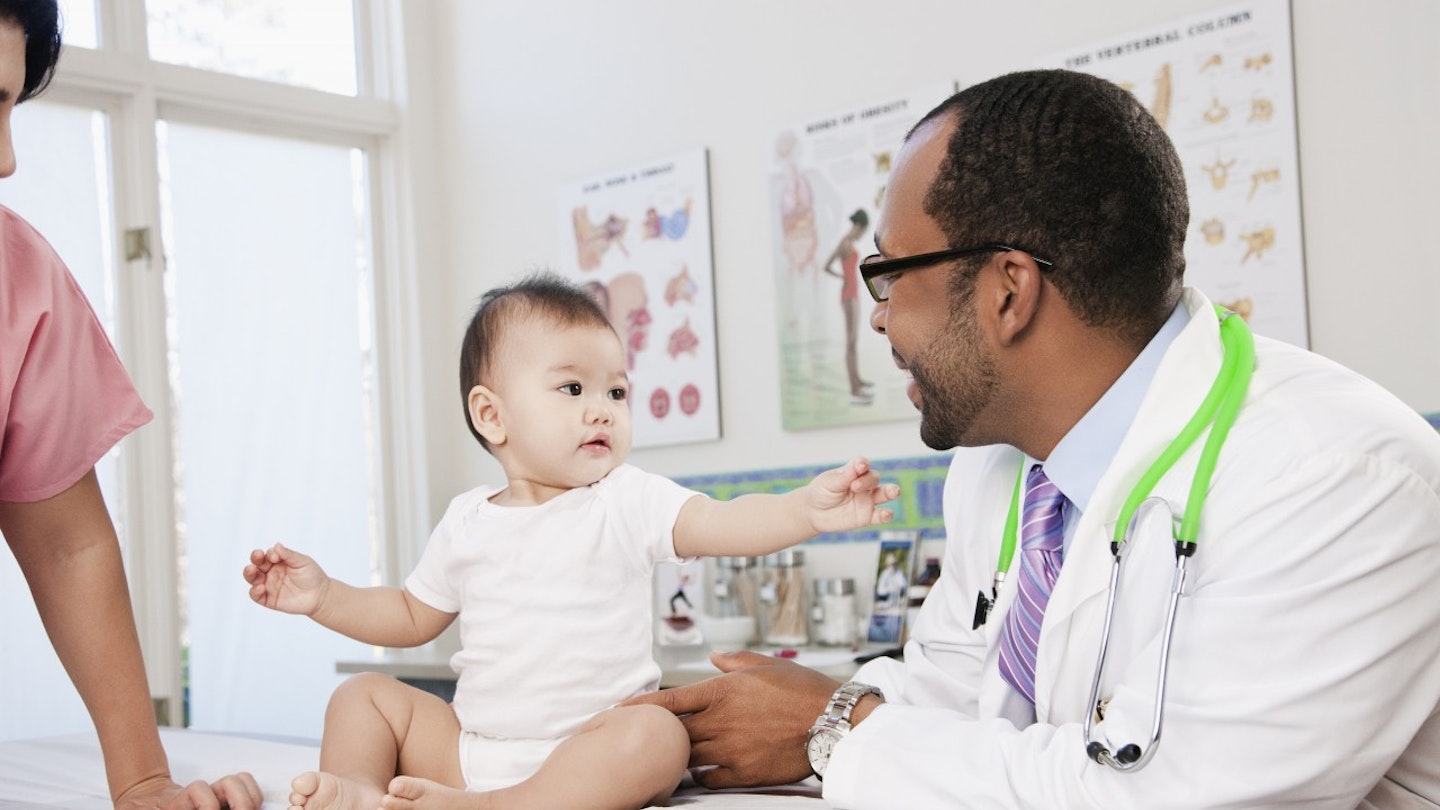In the first few years of your baby’s life, your baby has lots of vaccinations. Get clued up on what they involve.
Your baby is born with little immune defence against the world around him. While he develops resistance to potentially harmful viruses, he needs some help in the form of the baby vaccination programme.
Those first vaccinations will help your baby’s immune system fight off common diseases, making him less likely to get ill. And while it may not be pleasant for him, there are ways to keep him calm during his vaccinations.
Your GP should get in contact you when your baby is due for each vaccine, but if you think you’ve been forgotten then do chase it up. So which vaccines does your baby need and when?
2-month-old baby
5-in-1 (DTaP/IPV/Hib) vaccine (first dose of three)
Protects against: one vaccine to protect against diphtheria, tetanus, whooping cough, polio and Haemophilus influenzae type B. Administered by injection.
Pneumococcal (PCV) vaccine (first dose of three)
Protects against: infections that can lead to pneumonia, septicaemia and meningitis. Administered by injection.
Rotavirus vaccine (first dose of two)
Protects against the infection that is a common cause of diarrhoea and sickness. Administered by liquid that’s swallowed.
Men B vaccine (first dose of three)
Protects against infection by meningococcal group B bacteria that can cause meningitis and septicaemia. Administered by injection.
3-month-old baby
Men C vaccine
Protects against infection by meningococcal group C bacteria that can also cause meningitis and septicaemia. Administered by injection.
5-in-1 (DTaP/IPV/Hib) vaccine (second dose of three)
Rotavirus vaccine (second dose of two)
4-month-old baby
5-in-1 (DTaP/IPV/Hib) vaccine (third dose of three)
Pneumococcal (PCV) vaccine (second dose of three)
Men B vaccine (second dose of three)
1-year-old baby
Hib/Men C booster
A single immunisation containing your baby’s second dose of the Men C vaccine, and his fourth dose of the Hib vaccine that protects against Haemophilus influenzae type B (the first three doses of which are administered through the 5-in-1 vaccine). Administered by injection.
Measles, mumps and rubella vaccine (MMR) (first dose of two)
A single vaccine protecting against all three illnesses. Administered by injection.
Pneumococcal (PCV) vaccine (third dose of three)
Men B vaccine (third dose of three)
Annually, at the age of two, three and four years
Now your baby’s grown into a toddler *sob*, he’ll need fewer vaccinations – which is a relief – and only one between his second and third birthdays.
Flu vaccine (annual)
There is now a flu vaccineavailable to toddlers, which is given as a nasal spray. He’ll be offered it between the age of two and three and then annually.
Three years and four months
At around this age (it can differ by a month or so either way), your toddler requires two more vaccinations to make sure his immune system is fighting fit before he starts school.
MMR vaccine
Your toddler needs a second dose of theMMR vaccine at this age.
4-in-1 (DTaP/IPV) pre-school booster
This single jab offers protection against four different illnesses – diphtheria, tetanus, whooping cough and polio.
Read next: Meningitis: symptoms, types and treatment
